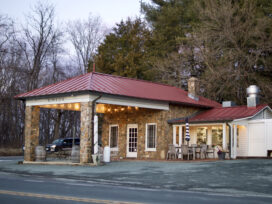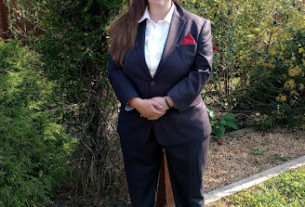Homeless youth struggle to survive, find beauty in life
Chapped and soot encrusted youthful faces, with eyes that tell stories of innocence lost, look out at silent nights disturbed by the rough and rugged rambling of trains chugging along the tracks to a destination far away. Emptied bottles lie abandoned by the tracks, an eerie reminder that someone was once here.
To many, this sounds like the beginnings to a Great Depression novel, but to many others this is a gritty yet romantic reality.
As teens transition into adulthood, it typically means college, part-time jobs and learning how to survive with- out parents, but for some, it means stuffing bare essentials in a pack, leaving home, and heading nowhere in particular.
“Life on the road is not something for everyone,” said “Mo” a “traveling kid”, who gets around by hopping freight trains and hitchhiking. “There is no sense of home anymore because each day you wonder where you are going to sleep, how you are going to eat, and you constantly have to wonder where you are going next.”
Life for a traveling kid means no guarantees. Sofas of strangers, park benches, and even under bridges can become home for the night. In some big cities, particularly ones with a larger homeless population, there are “bum feeds” (such as Food Not Bombs) that offer free food to those in need, but in other, smaller towns, meals are either found was “flying a sign” (holding a sign for donations) “Most people give you change, cigarettes or coupons, but this one lady in Savannah gave me a McDonalds application and told me to get a life.”
“People either respond to you in interest or disgust; a lot of how people will respond to you depends on write on a sign for where you are. In San Francisco, I can write something funny like “Hungry Hungry Hobos” or “Betcha can’t hit me with a quarter”, but when I was in Savannah I wrote something like “Traveling and Hungry. Anything Helps. God Bless.”
You just have to know what kind of city you are in dumpsters or given by the generosity of strangers. Some strangers are not as friendly as others. Mo recalled one time when he who you are with. I’ve been traveling mostly with my dog, and people are nicer when there are animals involved. It also helps to know what to in; typically Southern cities are less welcoming to some dread-hawked homeless kid with home done tattoos and patched up clothing. Mo talked about how it is going to be time to come home for the holidays soon. “I can either hitch-hike my way back to the east coast, or I can hop a train.” Catching a ride on a freight train is not only illegal, but can also be extremely dangerous. To hop on a train, it has to be going around 1 to 2 mph, or else you can be sucked under, but also, waiting in the train yard can be risky as well. Getting caught trying to catch a train is a felony, and even once on the train, it is easy to be caught until the train picks up speed.
“Probably the scariest part about traveling is waiting for the train to really get going once you get on it. You’re just wait- ing for it to slow down and to get arrested,” he said.
As fall approaches, nights are getting colder, and to those who have to sleep out- side, that is not a welcomed
thing. “You have to sleep in layers, but sometimes that isn’t enough. Some nights mean getting drunk enough that you can accept sleeping out- side,” Mo explained, “I know it makes more sense to people to spend money on food, but when you are sleeping undera bridge in the cold and rain, that beer may be what is keep- ing you sane. I was homeless in Charlotte, where I’m from, but I had places to go, and people I could trust. On the road, you meet people, most of which are traveling, too, and we stick together for the most part. It’s like a family in itself. You have a lot of trust and respect in a home- less community. We all know how hard it can be, so we try not to screw each other over.”
“I miss home. I miss my friends, but I also love this life. I couldn’t stay with my family at home anymore. I didn’t have money to get around. I couldn’t find a steady job without a phone or a car. I had been complacently miserable at home for the past few years. I knew of some kids traveling that had all these crazy stories, and when someone offered me to go with them, I figured ‘why not?”. I had gotten used to surviving off of basically nothing, so why do I just do that at home? I get to see the whole country for free. I get to have this awe- some adventure that most people will never have. I get to meet people from all over the world, from all different walks of life, people that I would have never gotten to meet if I didn’t live this lifestyle. I get to enjoy the small things in life much more than I ever would have before. That dollar burger can taste a lot better when you haven’t eaten in days. That kid next to you playing the banjo can become the most beautiful sound you have ever heard.”
In this day and age, life on the road is thought of as something in the past, Gypsies in caravans, telling your fortune out of a crys- tal ball, reading tarot cards and pick-pocketing you when you turn around, but for these current day gyp- sies, it is not quite the same.
Life is a constant struggle to get by. There is nowhere to go to have the warm com- fort of home, in many ways, it seems like a life lost, but for many, this is the only life left to live. It can be grittily beautiful, alone, mysterious, and sometimes eerie. Memo- ries are made one day, and moved on from by the next.
Life for these lost boys be- comes much like the aban- doned bottles the leave be- hind, something fulfilling for a time, but is left empty and be- comes considered worthless.






